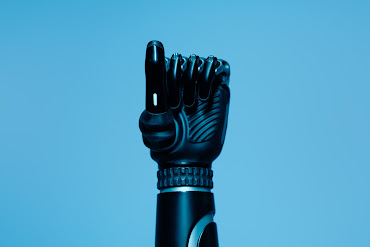Introduction
In today's fast-paced digital world, smartphones have become an indispensable part of our lives, with Apple's iPhone being one of the most popular choices. With the growing reliance on iPhones for communication, work, entertainment, and more, a reliable charging cable is essential. However, the market is flooded with a plethora of options, leaving many to wonder: is an iPhone cable worth buying? In this article, we'll delve into the pros and cons of purchasing an official iPhone cable, as well as alternatives, to help you make an informed decision.For details: https://amzn.to/3rSK9tM
Pros of Buying an Official iPhone Cable
Reliability and Compatibility: Official iPhone cables are designed by Apple to be fully compatible with their devices. This ensures a seamless connection and minimizes compatibility issues that might arise with third-party cables.
Safety and Protection: Apple's official cables undergo rigorous testing to meet safety standards. This reduces the risk of overheating, short-circuiting, or damaging your device during charging.
Fast Charging and Data Transfer: Apple's Lightning cables are optimized for fast charging and high-speed data transfer between your iPhone and other devices. Using an official cable can maximize the efficiency of these processes.
Longevity: Official iPhone cables are built to withstand wear and tear, offering better durability compared to many generic alternatives. This can save you money in the long run by reducing the frequency of cable replacements.
Warranty and Customer Support: Purchasing an official cable often comes with the backing of Apple's customer support and warranty, providing you with a safety net in case of any issues.
Cons of Buying an Official iPhone Cable
Cost: One of the most significant drawbacks of official iPhone cables is their cost. Apple-branded accessories tend to be more expensive than generic alternatives available in the market.
Limited Length Options: Official cables might not offer the same variety of length options as third-party cables. This can be inconvenient if you require a longer cable for specific situations.
Counterfeit Products: Due to the popularity of Apple products, counterfeit cables labeled as "official" are prevalent. It's crucial to purchase from authorized retailers to avoid subpar and potentially dangerous products.
Restrictions and Proprietary Technology: Apple's proprietary Lightning connector can limit compatibility with devices that use different types of connectors. This can be frustrating if you want to use your cable with devices from other manufacturers.
Exploring Third-Party Alternatives
Pros of Third-Party Cables
Affordability: Third-party cables are often more budget-friendly than official ones, making them a cost-effective option for those on a tight budget.
Variety: The market offers a wide range of third-party cables in different lengths, colors, and designs, allowing you to choose a cable that suits your preferences.
Compatibility: Some third-party cables are designed to be universally compatible, working not only with iPhones but also with other devices that use USB-C or micro-USB connectors.
Cons of Third-Party Cables
Quality Varies: The quality of third-party cables can vary greatly. While some may work well, others might not provide the same level of durability, safety, or performance as official cables.
Compatibility Concerns: Some third-party cables might not work seamlessly with all iOS updates or devices, leading to compatibility issues or even damage.
Safety Risks: Low-quality third-party cables can pose safety risks, including overheating, short-circuiting, or damaging your device's battery.
Making the Decision
Deciding whether an iPhone cable is worth buying depends on your priorities, budget, and how you plan to use the cable. If reliability, compatibility, and safety are your top concerns, investing in an official iPhone cable might be the right choice. On the other hand, if you're looking for a more affordable option and are willing to do thorough research to find a reputable third-party cable, you might opt for an alternative.
Before making a decision, consider the longevity of your investment. While official cables might cost more upfront, their durability and compatibility can save you money in the long run by reducing the need for frequent replacements.
In conclusion, an iPhone cable can be worth buying if you prioritize reliability, compatibility, and safety. However, if you're open to exploring more affordable options, make sure to research reputable third-party cables to ensure you're getting a product that meets your needs without compromising on quality or safety. Whichever option you choose, ensuring a reliable and efficient charging experience is essential to keep your iPhone functioning optimally in today's tech-driven world.
Deciding whether an iPhone cable is worth buying depends on your priorities, budget, and how you plan to use the cable. If reliability, compatibility, and safety are your top concerns, investing in an official iPhone cable might be the right choice. On the other hand, if you're looking for a more affordable option and are willing to do thorough research to find a reputable third-party cable, you might opt for an alternative.
Before making a decision, consider the longevity of your investment. While official cables might cost more upfront, their durability and compatibility can save you money in the long run by reducing the need for frequent replacements.
In conclusion, an iPhone cable can be worth buying if you prioritize reliability, compatibility, and safety. However, if you're open to exploring more affordable options, make sure to research reputable third-party cables to ensure you're getting a product that meets your needs without compromising on quality or safety. Whichever option you choose, ensuring a reliable and efficient charging experience is essential to keep your iPhone functioning optimally in today's tech-driven world.
For details : https://amzn.to/3rSK9tM









0 Comments